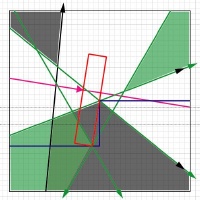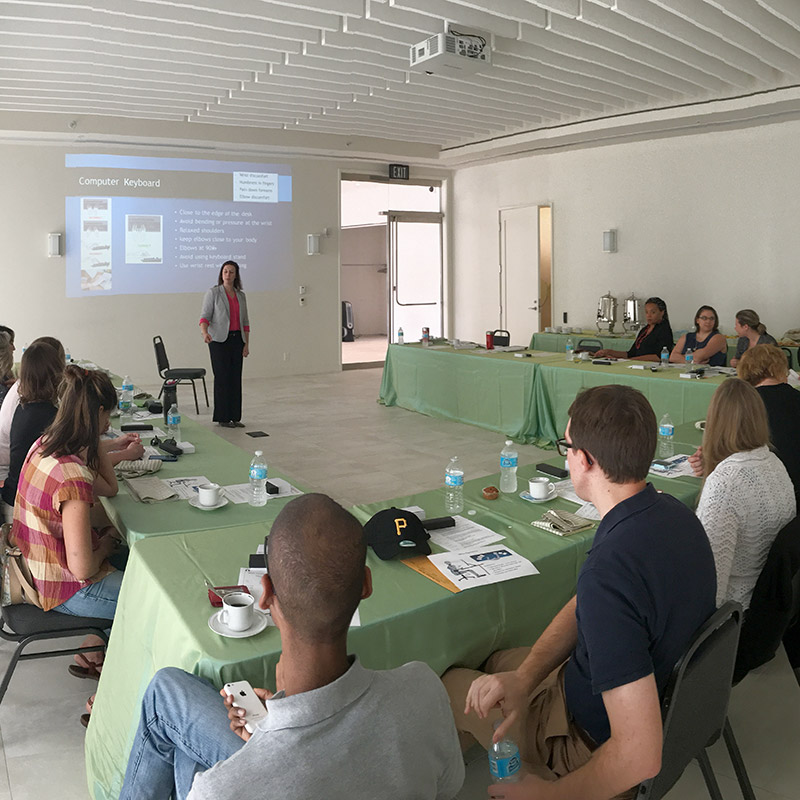Carnegie Mellon University
Compact Generative Models of Point Cloud Data for 3D Perception
Abstract: One of the most fundamental tasks for any robotics application is the ability to adequately assimilate and respond to incoming sensor data. In the case of 3D range sensing, modern-day sensors generate massive quantities of point cloud data that strain available computational resources. Dealing with large quantities of unevenly sampled 3D point data is [...]
Carnegie Mellon University
Mathematical Models of Adaptation in Human-Robot Collaboration
Abstract: While much work in human-robot interaction has focused on leader- follower teamwork models, the recent advancement of robotic systems that have access to vast amounts of information suggests the need for robots that take into account the quality of the human decision making and actively guide people towards better ways of doing their task. [...]
Multi-class Boosting in Computer Vision
Abstract: Boosting classifiers have been extensively used for learning multi-view single objects detectors (e.g. faces, cars or pedestrians) or in multiple object categories detectors. Object detection has been evolving from being specific for a given object category to multi-view or even being able to detect multiple categories at the same time. The usual framework for [...]
On-Demand Machine Knitting for Everyone
Abstract: Knitting machines are general-purpose fabrication devices that can robustly create intricate 3D surfaces from yarn by cleverly actuating thousands of mechanical needles. Knitting machines are an established feature of the textiles production landscape, in use today to make everything from socks to sweaters. However, the current design tools for machine knitting are sorely lacking [...]
The Critical Radius in Sampling-Based Motion Planning
Abstract ------------ Motion planning is a fundamental problem in robotics: allowing autonomous robots to efficiently navigate in environments cluttered with obstacles. Sampling-based algorithms, which were first described two decades ago, have made a great impact on the field of robotics by providing simple but highly-effective tools for motion planning. These techniques aim to capture the [...]
Staff Lunch
By Invitation Only - All Robotics Institute administrative support staff are invited to join us for our monthly lunch meeting. Cheryl will provide a brief update on the team reorganization.
Terrestrial and Extraterrestrial Robotics in the Age of Autonomy
Liam Pedersen leads the autonomous vehicle group at Nissan’s Research Center in Silicon Valley, focusing on the AI software for driverless operations in urban areas. Prior to this he worked on robotic systems for planetary exploration at NASA’s Ames Research Center in California. He holds a Ph.D. in robotics from Carnegie Mellon University, and is the recipient [...]
AI, Robotics, and Autonomous Vehicle Development at Ford Motor Company
Notice: The Location for these event has changed! The event will now take place in 6115 Gates Hillman Center. Education: Ph.D. in Physics, University of Michigan M.S. in Physics, Michigan State University B.S. in Physics & Mathematics, University of Wisconsin – River Falls Abstract: This presentation will highlight the history of autonomous vehicle development at [...]
Carnegie Mellon University
Learning to learn from simulation: Using simulations to expedite learning on robots
Abstract: Robot controllers, including locomotion controllers, often consist of expert-designed heuristics. These heuristics can be hard to tune, particularly in higher dimensions. It is typical to use simulation to tune or learn these parameters and test on hardware. However, controllers learned in simulation often don't transfer to hardware due to model mismatch. This necessitates controller [...]








